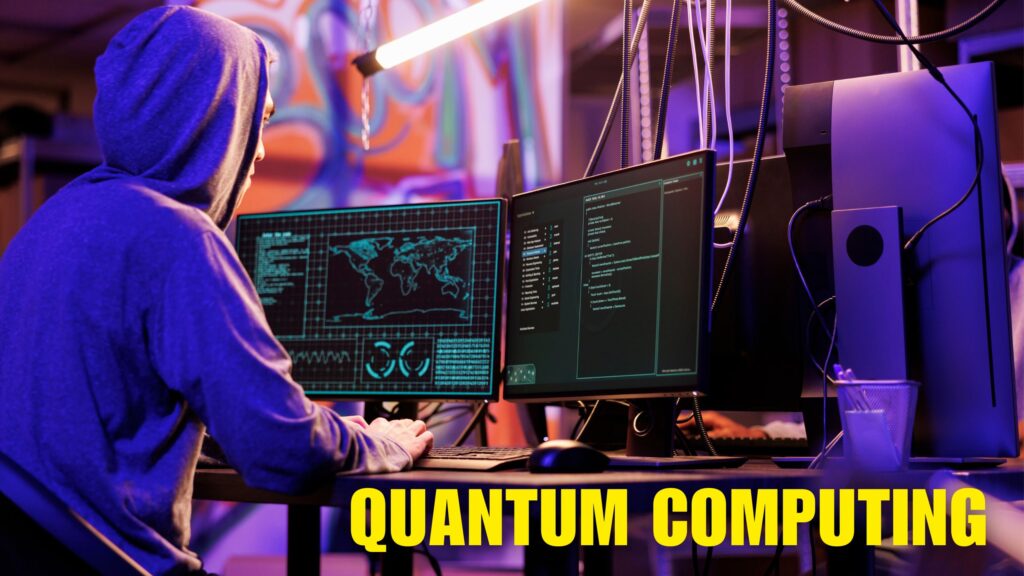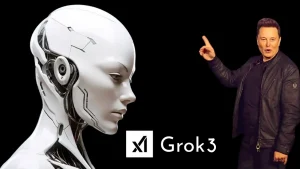Quantum mechanics emerged as a branch of physics in the early 1900s to explain nature on the atomic scale, leading to advances like transistors, lasers, and MRI. Idea of merging quantum mechanics and information theory arose in the 1970s, but it gained significant attention in 1982 when physicist Richard Feynman argued that classical computing couldn’t effectively process quantum phenomena.
He proposed that quantum computing, configured to simulate quantum phenomena, would bypass such bottlenecks, eventually leading to the field of quantum simulation. This didn’t initially spark much research.
Interest in quantum computing surged in 1994 when mathematician Peter Shor developed a quantum algorithm capable of efficiently finding the prime factors of large numbers – a task beyond the reach of classical algorithms in practical timeframes.
Shor’s insight underscored the potential of quantum computing, as it threatened the security of online transactions that rely on the RSA cryptosystem, which is based on the difficulty of factoring large numbers with classical algorithms.
What is Quantum Computing?
Quantum computers differ fundamentally from classical computers in how they process information, relying on principles of quantum mechanics like superposition and entanglement. Unlike classical bits that represent either 0 or 1, quantum bits—or qubits—can exist in a superposition of both states simultaneously. This means a qubit holds a probability of being in either state until it is measured, at which point it collapses into one. This property allows quantum computers to handle complex calculations with many variables more efficiently than classical computers.
Entanglement, another key principle, links qubits in such a way that the state of one instantly influences the state of another, regardless of distance. This interconnectedness enables quantum computers to perform computations that manipulate probabilities in a highly coordinated way. Rather than trying all possible answers simultaneously, quantum algorithms increase the likelihood of the correct answer through interference and entanglement, making quantum computers uniquely powerful for certain types of problems.
History of Quantum Computing
The idea of a quantum computer was born out of the difficulty of simulating quantum systems on a classical computer. In the 1980s, Richard Feynman and Yuri Manin independently suggested that hardware based on quantum phenomena might be more efficient for the simulation of quantum systems than conventional computers.
There are many ways to understand why quantum mechanics is hard to simulate. The simplest is to see that matter, at a quantum level, is in a multitude of possible configurations (known as states).
Quantum States Grows Exponentially
Consider a system of electrons with 40 possible locations, where each location can either have or not have an electron. This system might be in any of 2402^{40} configurations (since each location has two possible states: occupied or empty). Storing the quantum state of these electrons in a conventional computer would require over 130 GB of memory. If the number of possible locations increases to 41, there would be 2412^{41} configurations, doubling the memory requirement to over 260 GB.
This escalating memory requirement illustrates that the game of increasing locations cannot be played indefinitely. With just a few hundred electrons, the memory needed to store the system would exceed the number of particles in the universe. Therefore, simulating quantum dynamics with conventional computers is unfeasible.
Quantum computing, on the other hand, offers a potential solution. By leveraging the principles of superposition and entanglement, quantum computers can handle these vast amounts of data more efficiently. This capability makes quantum computers uniquely suited for simulating complex quantum systems and solving problems that are intractable for classical computers.
What is a Qubit?
Just as bits are the fundamental units of information in classical computing, qubits (quantum bits) are the fundamental units of information in quantum computing.
A qubit is the basic unit of information in quantum computing. While qubits play a similar role to bits in classical computing, they behave very differently. Classical bits are binary and can hold only a state of 0 or 1. Qubits, it can hold a superposition of all possible states. This means a qubit can exist in a state of 0, 1, or any quantum superposition of the two. There are infinite possible superpositions of 0 and 1, making each a valid qubit state.
In quantum computing, information is encoded in the superposition of the states 0 and 1. For example, with 8 bits, you can encode 282^8 (256) different values, but you have to choose one to encode since the 256 values can’t coexist. With 8 qubits, you can encode all 256 values simultaneously. This capability stems from a qubit’s ability to exist in a superposition of all possible states.
Why do We Want It?
The pursuit of building a quantum computer capable of running Shor’s algorithm on large numbers has driven major advancements in quantum computation. Researchers continue to explore which problems quantum computers can solve more efficiently and design algorithms that showcase these advantages.
Quantum computers promise to deliver significant speed-ups for specific problem types. Scientists are actively developing quantum algorithms tailored for optimization challenges—crucial in fields like defense, logistics, and financial trading—where classical methods often fall short.
To computing and simulation, there are multiple promising applications for qubit systems. Two prominent areas of research include:
1. Quantum sensing and metrology: Leveraging the extreme sensitivity of qubits to the environment to achieve sensing beyond the classical shot noise limit.
2. Quantum networks and communications: Potentially revolutionizing how information is shared.
FAQs
What is quantum computing?
Quantum computing leverages the principles of quantum mechanics to process information in ways that classical computers cannot. It uses qubits instead of classical bits to perform computations.
How do quantum computers differ from classical computers?
Quantum computers use qubits, which can exist in superpositions of states, whereas classical computers use bits that can only be 0 or 1. This allows quantum computers to perform many calculations simultaneously.
What is a qubit?
Qubit (quantum bit) is the basic unit of information in quantum computing. Unlike classical bits, qubits can exist in multiple states at once due to superposition.
What are superposition and entanglement?
Superposition is the ability of a qubit to exist in multiple states simultaneously. Entanglement is a phenomenon where qubits become interconnected, and the state of one qubit can instantly influence the state of another, even at a distance.
What are the potential applications of quantum computing?
Quantum computing has potential applications in cryptography, optimization, drug discovery, materials science, financial modeling, and more, due to its ability to solve complex problems more efficiently.
What is Shor’s algorithm?
Shor’s algorithm is a quantum algorithm that efficiently finds the prime factors of large numbers, posing a potential threat to classical encryption systems like RSA.
What is quantum supremacy?
Quantum supremacy is the point at which a quantum computer can solve a problem that is practically unsolvable for classical computers. This milestone demonstrates the superiority of quantum computing for certain tasks.
Who are the leading companies in quantum computing?
Leading companies include IBM, Google, Microsoft, Intel, and D-Wave Systems, all of which are making significant investments in quantum research and development.
What are the challenges of building quantum computers?
Key challenges include maintaining qubit stability (coherence), error correction, scaling up the number of qubits, and developing practical quantum algorithms.
When will quantum computers become mainstream?
While quantum computing is still in its early stages, advancements are being made rapidly. It is expected that quantum computers will become more mainstream in the next decade or so, as technology continues to develop.




